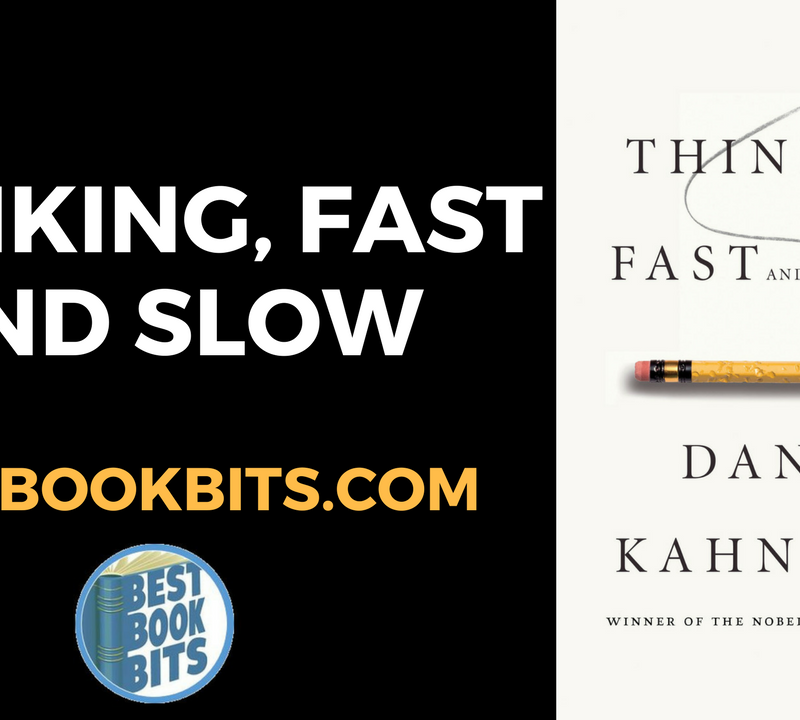JOIN THE ‘BEST BOOK CLUB’ NOW HERE
DOWNLOAD THIS FREE PDF SUMMARY HERE
STOP TRYING TO ACHIEVE YOUR GOALS BY YOURSELF AND BE COACHED TODAY HERE
CHECK OUT THE FOLLOWING Book | Summaries | Course | YouTube |Spotify | Instagram | Facebook | Newsletter | Website
Beyond Order by Jordan Peterson
The companion volume to 12 Rules for Life offers further guidance on the perilous path of modern life.
In 12 Rules for Life, clinical psychologist and celebrated professor at Harvard and the University of Toronto Dr. Jordan B. Peterson helped millions of readers impose order on the chaos of their lives. Now, in this bold sequel, Peterson delivers twelve more lifesaving principles for resisting the exhausting toll that our desire to order the world inevitably takes.
In a time when the human will increasingly imposes itself over every sphere of life—from our social structures to our emotional states—Peterson warns that too much security is dangerous. What’s more, he offers strategies for overcoming the cultural, scientific, and psychological forces causing us to tend toward tyranny, and teaches us how to rely instead on our instinct to find meaning and purpose, even—and especially—when we find ourselves powerless.
While chaos, in excess, threatens us with instability and anxiety, unchecked order can petrify us into submission. Beyond Order provides a call to balance these two fundamental principles of reality itself, and guides us along the straight and narrow path that divides them.
About Jordan Peterson
Jordan Peterson is a Canadian YouTube personality, clinical psychologist and professor of psychology at the University of Toronto. He grew up in the wastelands of Northern Alberta. He earned his PhD and post-doctorate in clinical psychology from McGill University before working as a professor at Harvard University.
Peterson’s various TV appearances for commentary on personality, religion and cultural Marxism have made him famous. More recently, in 2016, Peterson released a series of YouTube videos that criticized new discrimination laws based on gender identity. Based on these videos, he received significant media coverage ranging from criticism to praise.
Peterson describes himself politically as a classic British liberal and traditionalist. So, he supports individual liberty and maintaining tradition. That said, he doesn’t align with a right-wing ideology even though he is often mischaracterized as right-wing.
Peterson has deeply experienced the world. He has flown a hammer-head roll in a carbon-fiber stunt plane and explored an Arizona meteorite crater with astronauts. He has also taught mythology to lawyers, doctors and business people. He has consulted for the UN secretary-general and served as an adviser to senior partners of major Canadian law firms.
Rule I – Do Not Carelessly Denigrate Social Institutions or Creative Achievement
Although Peterson describes himself politically as a British liberal, he is keen to point out that liberals need to remember that social institutions exist for a reason. The reason they are maintained over long periods is they are doing many things very well. That said, Peterson also offers advice to conservatives. Although social institutions are important, conservatives must also be open to new ideas and ways of thinking. We should not marginalize those who are seeking to improve and innovate how society has been doing things. The world will change and you have to be ready to adapt.
So, Peterson suggests the readers look at successful individuals and creative inventions as inspiration. All successful societies have had a bottom-up hierarchy. This means you can have an impact on the world but you must also accept the balance of society.
Rule II – Imagine Who You Could Be and Then Aim Single-Mindedly at That
Your mind has the potential to change your future self. Peterson describes imagination as the key to improving ourselves. The most successful individuals had to imagine something that had not been seen or done before. They challenged the social order and offered their chaos. So, encourage your imagination and use visualization to make these ideas a reality.
Rule III – Do Not Hide Unwanted Things in the Fog
“Best to find out what is true. Best to disperse the fog and best to find out if the sharp objects that were lurking there are real or fantastical. There’s always the danger that some of them are real. But it is better to see them than have them occluded by the fog because you can at least sometimes avoid the danger that you are willing to see.” – Jordan Peterson
Peterson describes the fear we develop as we grow older. Many of us are nostalgic about our younger years when things were easier and trust had not yet been broken. As we grow older, many of us become scared of ourselves, others and the world around us. Peterson describes the fog as a dark time in your life. We are afraid of not knowing what we want or knowing exactly what we want but failing to acquire it. We are afraid that failure is the most likely outcome. Finally, Peterson highlights we are also often afraid of defining failure. This is because if we then fail, we know beyond a shadow of a doubt that we were to blame. The outcome of these fears is we don’t let ourselves know what we want.
We are also afraid of letting other people know what we want. This is because:
- We worry the other people will tell us what we want, even though we want to remain ignorant
- These people might decide to prevent us from getting what we want and need
Peterson describes the fog that hides as the refusal to notice, attend to and communicate emotions as they arise. To be successful, you must notice, attend to and communicate to others the emotions you have regarding what you do and don’t want. When you can do this, you and your loved ones will help you determine your purpose. This is particularly important because Peterson believes you cannot have happiness without purpose.
JOIN THE ‘BEST BOOK CLUB’ NOW HERE
DOWNLOAD THIS FREE PDF SUMMARY HERE
STOP TRYING TO ACHIEVE YOUR GOALS BY YOURSELF AND BE COACHED TODAY HERE
CHECK OUT THE FOLLOWING Book | Summaries | Course | YouTube |Spotify | Instagram | Facebook | Newsletter | Website
Rule IV – Notice That Opportunity Lurks Where Responsibility Has Been Abdicated
Taking responsibility yourself offers you the chance to take advantage of areas where others have abdicated responsibility. That said, most people choose to abdicate responsibility. Peterson uses the example of playing games. People will tend to create more narrow restrictions than the game allows. This means they limit themselves and they are unable to explore all possibilities. So, try to break through this usual order in your life and start taking more responsibility. This will create meaningful paths that encourage happiness.
Rule V – Do Not Do What You Hate
Peterson believes that life is too short to be spending time doing what you hate. Although there will be times that you have to overcome challenges, you should not make the active decision to deliberately do what you hate. For example, you must find a career that you enjoy. Work takes up such a significant proportion of your time that you should not do a job that you hate.
Rule VI – Abandon Ideology
This rule recommends moving away from strict ideologies. Although we should respect ideas that have stood the test of time, we should not follow them blindly. So, we should admire people and ideas but also challenge them.
Rule VII – Work as Hard as You Can on at Least One Thing and See What Happens
Peterson uses diamonds as a metaphor to explain the importance of working hard. When exposed to extreme heat and pressure, coal can be turned into diamonds. Diamonds become one of the hardest and most beautiful substances in the world. So, place yourself under pressure by working hard and see what the outcome is.
Rule VIII – Try to Make One Room in Your Home as Beautiful as Possible
“We think we border our great paintings with luxurious, elaborate frames to glorify them, but we do it at least as much to insist to ourselves that the glory of the painting itself ends at the frame. That bounding, that bordering leaves the world we are familiar with comfortably intact and unchanged. We do not want that beauty reaching past the limitations imposed on it and disturbing everything that is familiar.” – Jordan Peterson
This rule builds on one of the fundamental features of Peterson’s first book, 12 Rules for Life. In this first book, Peterson talks about how you must sort your own house before helping others. A practical example of this is making sure your bedroom is clean before doing anything else. Peterson believes that making one room as beautiful as possible is not merely useful for aesthetic reasons. This room can actually act as motivation. He believes that beauty shows us how the world could be but isn’t. So, this room can motivate you to go out into the world and create more beauty.
Peterson also accepts that beauty can be scary. If we are surrounded by beauty, this can further highlight our own imperfections. That said, having just one room in your home offers a balance where you don’t feel overwhelmed but are prompted to consider ways you and the world can be improved.
Rule IX – If Old Memories Still Upset You, Write Them Down Carefully and Completely
Memories can either upset you as a perpetrator or a victim. Either way, you should not let these memories impact on your life today. The best way of addressing these emotions is to write them down carefully and in lots of detail. You will then be in a better position to address these emotions and stop them from influencing your decisions.
Rule X – Plan and Work Diligently to Maintain the Romance in Your Relationship
Most people rely on intuition and passion to maintain their relationships. These approaches will lack consistency and ultimately lead to an unhappy relationship. So, Peterson recommends identifying what you want and need from the relationship. This allows you to better communicate these needs to your partner. You must respond with seriousness if your partner isn’t communicating with you effectively.
You must also avoid being naive about the beauty of love carrying your relationship. Relationships require hard work and you should act as if all-out effort at all times is essential for the relationship’s success. You should also divide the requirements of your household in a manner that you both find acceptable. So, do not subject your slavery but also do not expect your partner to do more without repercussions.
Rule XI – Do Not Allow Yourself to Become Resentful, Deceitful, or Arrogant
Being a human guarantees that we experience uncertainty. Nature can hurt us in painful ways. Society and individual acts of evil can make us suffer. That said, this doesn’t mean that we can’t still be a good person or that society can’t be improved. If we all held back our resentment, deceit and arrogance the world would be an infinitely better place. The best way to defend yourself against these negative concepts is through diligence and continual purpose. Find purpose in your life and diligently reject resent, deceit and arrogance.
Rule XII – Be Grateful in Spite of Your Suffering
We often love other people despite and because of their limitations. Peterson encourages readers to think of suffering in the same way. We can be thankful for our existence despite our suffering. But, we can also be thankful that our suffering makes our experiences of love, happiness and trust even more special. Being grateful for your suffering can help you discover part of the antidote to the abyss and the darkness.
Final Summary
Beyond Order and Peterson’s first book, 12 Rules for Life, act like Yin and Yang. 12 Rules for Life describes the importance of order in a chaotic world. But, Beyond Order highlights that a bit of chaos is essential for innovation and positive change. Although the Left needs to understand that our social institutions are tried and tested, the Right needs to understand that creativity, change and innovation are essential in a chaotic world. Peterson encourages us all to adopt this balance by following his 12 more rules for life:
- Do not carelessly denigrate social institutions or creative achievement
- Imagine who you could be and then aim single-mindedly at that
- Do not hide unwanted things in the fog
- Notice that opportunity lurks where responsibility has been abdicated
- Do not do what you hate
- Abandon ideology
- Work as hard as you can on at least one thing and see what happens
- Try to make one room in your home as beautiful as possible
- If old memories still upset you, write them down carefully and completely
- Plan and work diligently to maintain the romance in your relationship
- Do not allow yourself to become resentful, deceitful, or arrogant
- Be grateful in spite of your suffering
JOIN THE ‘BEST BOOK CLUB’ NOW HERE
DOWNLOAD THIS FREE PDF SUMMARY HERE
STOP TRYING TO ACHIEVE YOUR GOALS BY YOURSELF AND BE COACHED TODAY HERE
CHECK OUT THE FOLLOWING Book | Summaries | Course | YouTube |Spotify | Instagram | Facebook | Newsletter | Website













